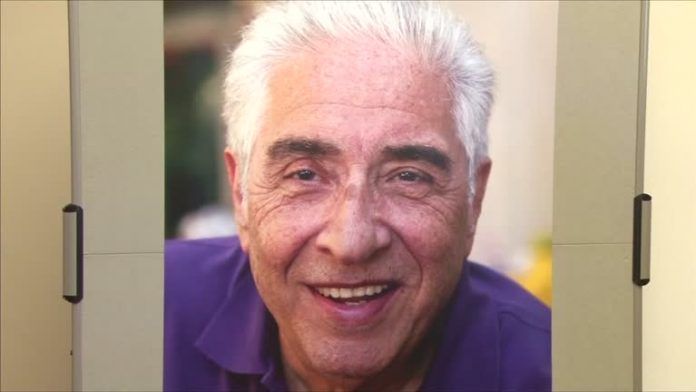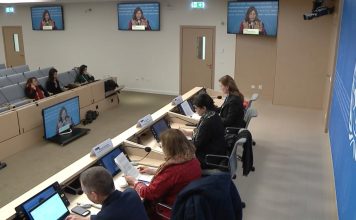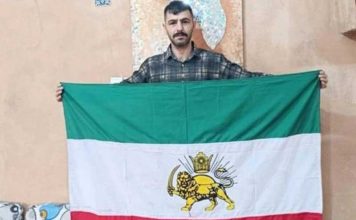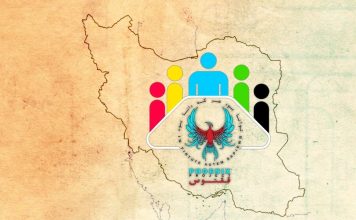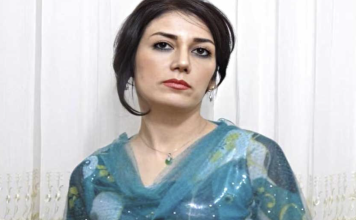Iranian-American Baquer Namazi has been barred from leaving Iran, even after his case was closed last year and a travel ban against him was lifted, according to his son Babak Namazi.
Babak Namazi issued a press release on Feb. 22 to coincide with the fifth anniversary of Baquer Namazi’s detention. The statement called on the U.S. government to secure Baquer’s release and that of his son Siamak Namazi, who is also detained in Iran.
Baquer Namazi — a former UNICEF official who helped draft the UN Convention on the Rights of the Child, and who was a governor of Khuzestan Province in Iran prior to the Iranian revolution in 1979 — was arrested in 2016 in Tehran while trying to secure the release of his son Siamak. On Oct.18, 2016, Baquer and Siamak Namazi were both sentenced to 10 years in prison for allegedly conspiring to overthrow the Iranian government.
Baquer Namazi, who has several serious health conditions including a critical heart condition, was initially released from prison in 2018 on temporary medical furlough, but was stopped by Iranian officials from leaving the country to undergo surgery for a blocked artery in his brain. Mr. Namazi’s travel ban was lifted in February 2020, following the Revolutionary Court’s decision to commute his sentence and close his case.
Jared Genser, the managing director of Washington D.C. law firm Perseus Strategies LLC, and president of non-profit Freedom Now which facilitates legal representation for arbitrarily detained individuals, has represented Baquer and Siamak since their detentions.
Genser, nicknamed ‘The Extractor’ by the New York Times for his work in freeing political prisoners, told Kayhan Life that the re-imposition of a travel ban on the 84-year-old father of two was a breach of Iran’s domestic laws.
2/2) “At the time, as you can imagine, we were overjoyed, privately, that finally the nightmare may be over for my father… It is beyond outrageous that Iran continues playing with my father’s life.” -Babak Namazi #FreeTheNamazis @FreeTheNamazis #FreeIranHostages
— Jared Genser (@JaredGenser) February 23, 2021
Today marks 5 years since Iran arrested Baquer Namazi, an 84-year-old American citizen.
Tehran will not allow Baquer to leave the country despite his failing health. His son Siamak, also an American citizen, remains imprisoned there.
— Senator Chris Coons (@ChrisCoons) February 23, 2021
“Contrary to its own judicial decision, Iran placed a new travel ban on Baquer Namazi without providing any information to him as to why, and with no due process of law, and has continued to keep him as a hostage in Iran,” he said. “It is important to emphasize that the U.S. should not need to negotiate in any way for Baquer to be released by Tehran. By its own law, he is free, and it is a flagrant violation of both Iranian law and international law for him to not be allowed to get a passport and leave the country.”
Concerns that the Iranian government has been arbitrarily detaining dual nationals to gain political leverage resulted in the creation on Feb.15 of a Canada-led declaration to condemn and deter the practice. The initiative, which aims to enhance international cooperation and push for consular access to detained dual nationals, has been backed by 56 countries including the United States and the United Kingdom.
Describing his father’s experiences in Tehran’s Evin prison in the press release, Babak Namazi said he had endured “horrific prison conditions, human rights violations, and the constant fear for the well-being of my brother Siamak,” and that “his time as a hostage has caused and exacerbated a variety of severe health conditions, some of which, such as his heart condition and the severe blockages in the major arteries to his brain, threaten to take his life at any moment.”
British politicians and relatives of detained dual nationals have called for the release of such prisoners to be a precondition for any deals between the West and Iran, including the nuclear deal, the 2015 Joint Comprehensive Plan of Action (JCPOA).
Genser has been pushing for the same precondition.
“We are in close contact with key U.S. government officials such as Rob Malley, U.S. Special Representative for Iran, and Roger Carstens, Special Presidential Envoy on Hostage Affairs, regarding both Namazi cases, and have emphasized repeatedly that American hostages need to be prioritized in whatever negotiations occur. No deal should happen without the release of all American hostages,” he said.
“The United States and the international community more broadly need to take a firm stance and enact real consequences on Iran’s hostage-taking to prove that it is not an effective foreign policy strategy,” he added.
On Feb. 24, the U.S. State Department issued a press statement announcing the U.S. government’s intention to request a seat on the UN Human Rights Council, starting in January 2022. In the statement, Secretary of State Antony Blinken said that if the U.S. was given a seat at the Council, it would “use the opportunity to be a leading voice within the Council for promoting respect for human rights.”
Putting Human Rights at the Center of U.S. Foreign Policy
The United Kingdom, which is already a Council member, pledged to tackle human rights abuses across the globe during a meeting of the Council on Feb. 22.
Referring to human rights violations in Myanmar, Belarus, Russia and China In his speech to the Council, U.K. Foreign Secretary Dominic Raab said: “We want to see an effective international human rights system that holds to account those who systematically violate human rights,” adding, “We will continue to speak up in this Council for what is right, and we will continue to back up our words with actions.”
Neither Blinken nor Raab noted Iran’s human rights abuses in their speeches, despite a recent report by United Nations Watch which said Iran had the second worst human rights record in the world, after China.
Iran Had World’s Second Worst Human Rights Record in 2020, UN Watch Says
In an op-ed published in the Wall Street Journal on Feb.17, Genser urged U.S. President Joe Biden to rethink the U.S. government’s approach to Iran.
“Mr. Biden should, as a matter of principle, refuse to engage in any bilateral discussions on any topic until Tehran releases its U.S. hostages,” he wrote. “This would clearly demonstrate that Washington won’t tolerate hostage taking as a foreign policy tool. It would be especially powerful if this position were taken in conjunction with other countries whose citizens Iran has taken hostage in recent years. This list includes Australia, Austria, Canada, France, the Netherlands, Sweden and the U.K.”

